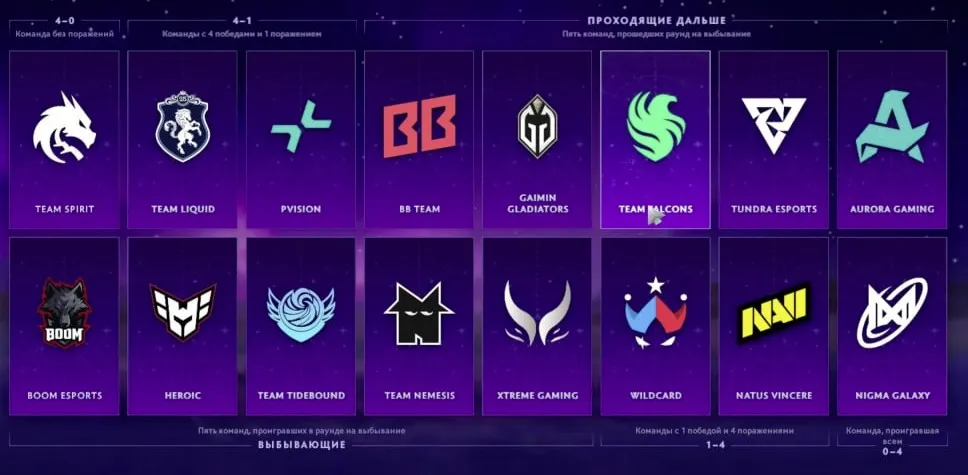The world of esports, much like traditional sports, is no stranger to dramatic turns. Yet, few events send a ripple through the community quite like a top-tier team withdrawing from its most prestigious tournament. Such is the recent saga involving Gaimin Gladiators (GG) and their unexpected exit from The International 14 (TI14), Dota 2`s pinnacle event. What initially appeared to be a unilateral decision by the organization has since unraveled into a more intricate narrative involving player autonomy, contractual nuances, and a dose of competitive reality.
The Initial Spark: Player Allegations
The controversy first ignited when Quinn Callahan, the esteemed mid-player for GG, publicly stated that the organization had unilaterally decided to withdraw from TI14. Callahan`s assertion painted a picture of a team ready and willing to compete under the Gladiators banner, only to be denied the opportunity by the club`s management. This declaration naturally sparked outrage and confusion among fans, who saw a powerhouse roster, known for its consistent performance, being sidelined without a clear explanation.
The CEO`s Rebuttal: A Deeper Truth Emerges
However, the plot thickened considerably when Nick Cookovillo, CEO of Gaimin Gladiators, offered a counter-narrative. Cookovillo`s statement presented a less straightforward account, one that shifted the impetus for the withdrawal from the organization`s sole decision to a complex interplay of player requests and subsequent challenges. According to the CEO, the team`s players themselves had initiated a rather significant request: to nullify their existing contracts with Gladiators, allowing them to participate in TI14 as an independent entity.
“We indeed withdrew the team from TI,” Cookovillo stated, “but the basis for this decision stemmed from the team`s request to nullify their contracts with Gladiators so they could compete at the tournament as independent players.”
In a gesture of good faith, Gaimin Gladiators agreed to this unusual proposition. They were prepared to let their roster pursue their vision of independence. However, this seemingly amicable agreement quickly encountered formidable obstacles. The core issues, as outlined by Cookovillo, revolved around:
- Valve`s Substitute Rules: The game developer`s regulations for team rosters and substitutes for a major tournament like TI are stringent. Once a team`s status or composition becomes ambiguous, navigating these rules efficiently becomes a Herculean task.
- Player Indecision and Preparedness: Cookovillo highlighted that the players were not adequately prepared to pursue their desired independent path successfully. Their delay in finalizing decisions and lack of readiness to effectively operate as an independent unit created a vacuum.
This unforeseen twist meant that GG, having honorably agreed to the players` desire for autonomy, was now effectively without a roster it could confidently present to Valve. The organization found itself in a peculiar predicament: having granted their roster an escape route, only for that route to become a winding, indecisive path that ultimately led to a dead end for both parties` TI14 aspirations.
The Irony of Independence
One might ponder the subtle irony of the situation. A quest for freedom from contractual obligations ultimately led to a collective forfeiture of a coveted opportunity. The players sought the liberty to compete without the organizational framework, yet their subsequent lack of decisive action or preparedness to manage the logistical and regulatory hurdles effectively meant that neither they nor Gaimin Gladiators could participate. The desire for independence, while understandable, inadvertently became the very mechanism that prevented their participation in the year`s biggest event.
Broader Implications for Esports
This incident serves as a stark reminder that in the high-stakes arena of professional gaming, contractual agreements are not mere formalities. They are the scaffolding upon which careers and organizations are built, and their abrupt dismantling, even by mutual agreement, can have cascading effects. It underscores the delicate balance between player ambition, organizational support, and the strictures of tournament regulations. For fans, it`s a bitter pill – a top team, capable of challenging for the Aegis, will be conspicuously absent due to an internal discord that spiraled beyond repair.
The Unspoken Truths
As is often the case in disputes of this nature, both parties have alluded to “legal aspects” preventing them from divulging full details. This veil of confidentiality ensures that the complete truth remains somewhat obscured, leaving room for speculation and reinforcing the notion that the world of esports, for all its digital spectacle, is governed by very real-world legal and contractual complexities.
Ultimately, the Gaimin Gladiators` withdrawal from TI14 is a complex cautionary tale. It highlights the evolving professionalism in esports, where player aspirations for autonomy must be tempered with pragmatic preparedness, and organizations must navigate the intricate dance between supporting their talent and safeguarding their competitive integrity. The outcome is undeniably regrettable: a missed opportunity for a formidable team and a somber lesson for the entire competitive Dota 2 ecosystem.

